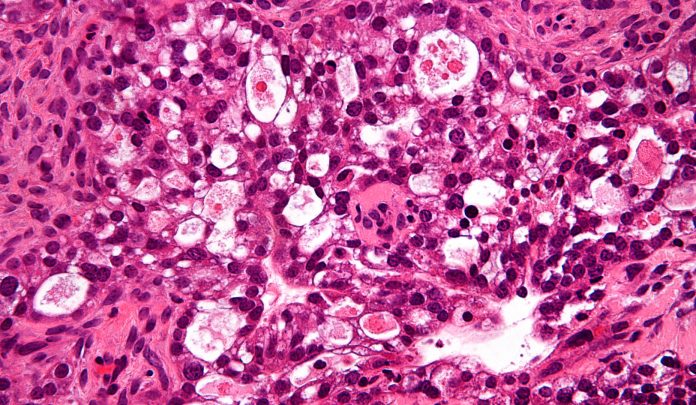
A study has found that an anti-cancer drug, ponatinib, which is used to fight leukaemia, has shown promise in tackling a rare and aggressive type of ovarian cancer.
The type of ovarian cancer, small cell carcinoma of the ovary hypercalcaemic type (SCCOHT), strikes women and girls as young as 14 months.
According to the study by the Translational Genomics Research Institute, USA, ponatinib was found in TGen-led drug screens and preclinical studies to significantly delay tumour growth and reduce tumour volume in SCCOHT.
Rare and aggressive
This rare and aggressive form of ovarian cancer has been diagnosed in women as old as 47 and girls as young as 14 months. It has a two-year survival rate of less than 35%.
Dr Jeffery Trent, TGen president and research director, and senior author of the study, said: “Current treatment for this devastating cancer has such poor response rates and extreme toxicity that we must find better therapeutics.
“Our work identifies a new treatment strategy that could provide these young women with improved patient benefit.”
Discovering the mutated gene
An international research team led by TGen first discovered that a mutation in the gene SMARCA4 was the genetic cause of SCCOHT, according to a 2014 study published in Nature Genetics.
The SMARCA4 gene was previously associated with lung, brain and pancreatic cancer. It was the only recurrently mutated gene in the study’s samples.
In the recent study, TGen laboratory researchers found that SCCOHT tumours that are driven by inactivating the SMARCA4 gene are reliant on receptor tyrosine kinase (RTK) cellular pathways.
Researchers identified these pathways from screens of drugs already approved by the FDA that might be effective against this cancer.
Improving outcomes for young patients
In laboratory models, ponatinib delayed tumour doubling time four-fold, reducing tumour volumes in models by as much as 58.6%.
Dr Jessica Lang, a TGen post-doctoral fellow and co-lead author of the study, said: “We identified ponatinib as the most effective clinically approved RTK inhibitor.
“It holds the potential for rapidly improving outcomes for these young patients.”























